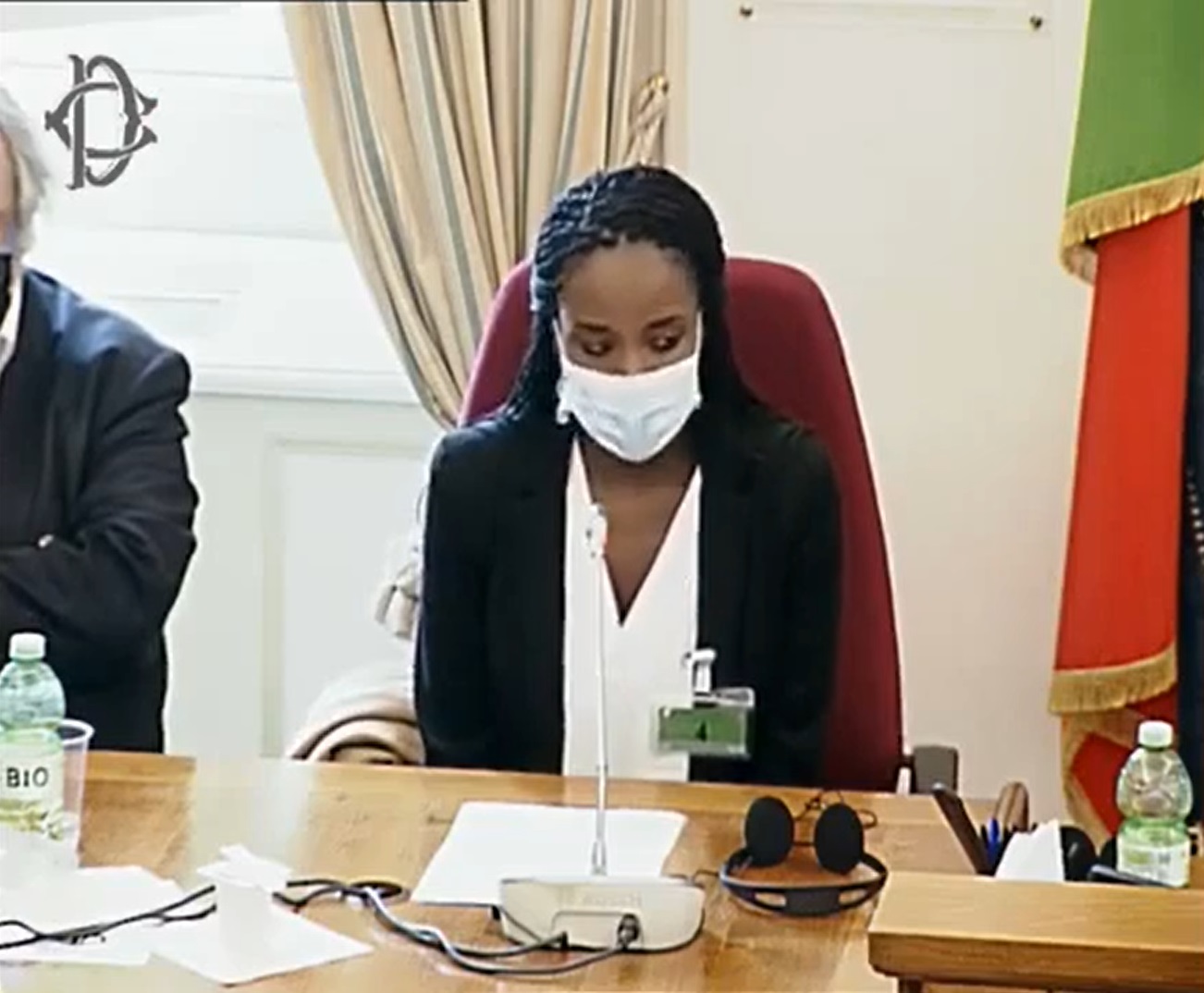International
Justin Podur, a conspirator portraying Rusesabagina as hero

Africa
is used to stereotypical narratives and disdainful conspiracies when foreigners,
mainly Westerners, are trying to make sense of African realities from their own
perspectives. But in 2021 it is not frequent that someone claiming to be a
university professor would argue that the 1994 genocide against the Tutsi should
be rejected, and explains what happened as an Anglo-Saxon global supremacy plot
to wrestle the great lakes region out of France’s sphere of influence which
culminated into a fabricated genocide
that the West blames on all Hutus as a tool to maintain control over
the region.
On
November 11, an obscure reactionary American magazine, “Covert Action”,
co-founded by a former CIA spy who turned against his employers, published an
article titled “Limited Hangouts: Western Intellectuals Whitewash Horrific Crimes of CIA
Asset Paul Kagame” written by Justin Podur, an associate professor
in the Department of Environmental and Urban Change at York University in
Toronto.
In
the article, he experimented a conspiratorial paradigm onto Rwanda’s liberation
war, the genocide against the Tutsi and regional conflicts, and sought to fit
them all in a CIA scheme with President Kagame as a CIA assent and RPF as an “imperialist
proxy”.
Podur’s
academic credentials and confidence may make readers think that he is knowledgeable
about the issues he discusses in his article, but as a matter of conspiracy, he
has no proof whatsoever. His article should not be cited as an expert source or
used in place of scholarly articles.
Here
is why.
First,
Podur’s article sought to discredit an already discredited Michela Wrong book,
or should we rather say a tribute to her “close friend” Patrick Karegeya, by
accusing her of being an instrument of Western superpowers’ scheme to control
and exploit the great lakes region. According to him, the purpose of Wrong’s
book is “to maintain the ideological mood in the West in the state that facilitates
the continued plunder” of Africa. Podur has it all wrong and fails to realized
that the only mood Wrong’s book can maintain is her smooth honey skin nostalgia.
Similarly,
according to Podur, the USA and UK have been engaged in a project to discard
President Kagame whom he alleges facilitated “neocolonialism in the region”, “but
he is now a villain”, and time has come “to start thinking about reining him in.”
On the other hand, Podur argues that the verdict in the case of Paul Rusesabagina,
whom he cites as one of the “African intellectual authority, has
been something of a turning point in the alliance between the West and Rwanda’s
President, and he claims that “the romance with Kagame has ended.”
Podur
further alleges that as a result of the fallout, Western powers unleashed Wrong
to throw the “CIA Asset” under the bus while preserving their innocence and
protecting their credibility.
Podur
describes this method as a “limited hangout” operation which consists of presenting
“the partial truth” about Kagame while, according to him, covering “the bigger
truth” about the role of RPF in armed conflicts in the region with the full
support of the U.S., UK, and international institutions. All these labels and accusations
against Kagame and the RPF are stated with no evidence.
Similarly,
Pudor’s denialist theory on the 1994 genocide against the Tutsi in Rwanda is an
unsubstantiated and hurtful conspiratorial trivialization of the genocide as
“inter-ethnic killings”. This form of denial is premised on racist assumptions
about the people of Rwanda, and it literally amounts to justifying the crimes
of convicted genocidaires, some of whom unequivocally pleaded guilty and
confessed to their role in the genocide.
Paradoxically,
in describing the alleged heroism of Rusesabagina in 1994, Podur accidently remembers
and admits it was “during the genocide in Rwanda in 1994 that killed as many as
one million people.” His lack of consistency illustrates a lack of joined up
thinking that characterizes conspiracy theorists.
Finally,
Podur rejects the genocide against the Tutsi in unprecedented terms as he
describes it as “a distortion [by Kagame] of the truth surrounding what
happened during the Rwandan genocide” which he claims has led to “labeling of
the conquered population as genocidaires”. According to Podur, the genocide
against the Tutsi is a malicious abstraction of “the [Interahamwe] militias’
massacres from the broader processes of war and civilian massacre.”
And
yet for all the criticism of “Africanists’” infantilization of Africans, Podur
concluded his reflection on the conspiracy of “Western neocolonialism in Africa”
by adopting a paternalistic posture that claims to know better what “Rwanda
needs” to achieve “real reconciliation”. He unwittingly suggested that genocide
must be rejected because it defines “Hutus as the genocidaires and eternally
guilty”, and recommends “to see what happened in Rwanda as a war.” In other
words, the only effective approach for peace and reconciliation is to reject
the genocide against the Tutsi.
To
Podur, the only response is an unambiguous reminder that on 16th
June 2006 the UN Tribunal on Rwanda solemnly declared “there was genocide in
Rwanda against Tutsi ethnic group”, and it is no longer necessary to prove or
debate with the genocide revisionists’ camp because the “genocide
against the Tutsi has passed moral, legal, and political tests.”






